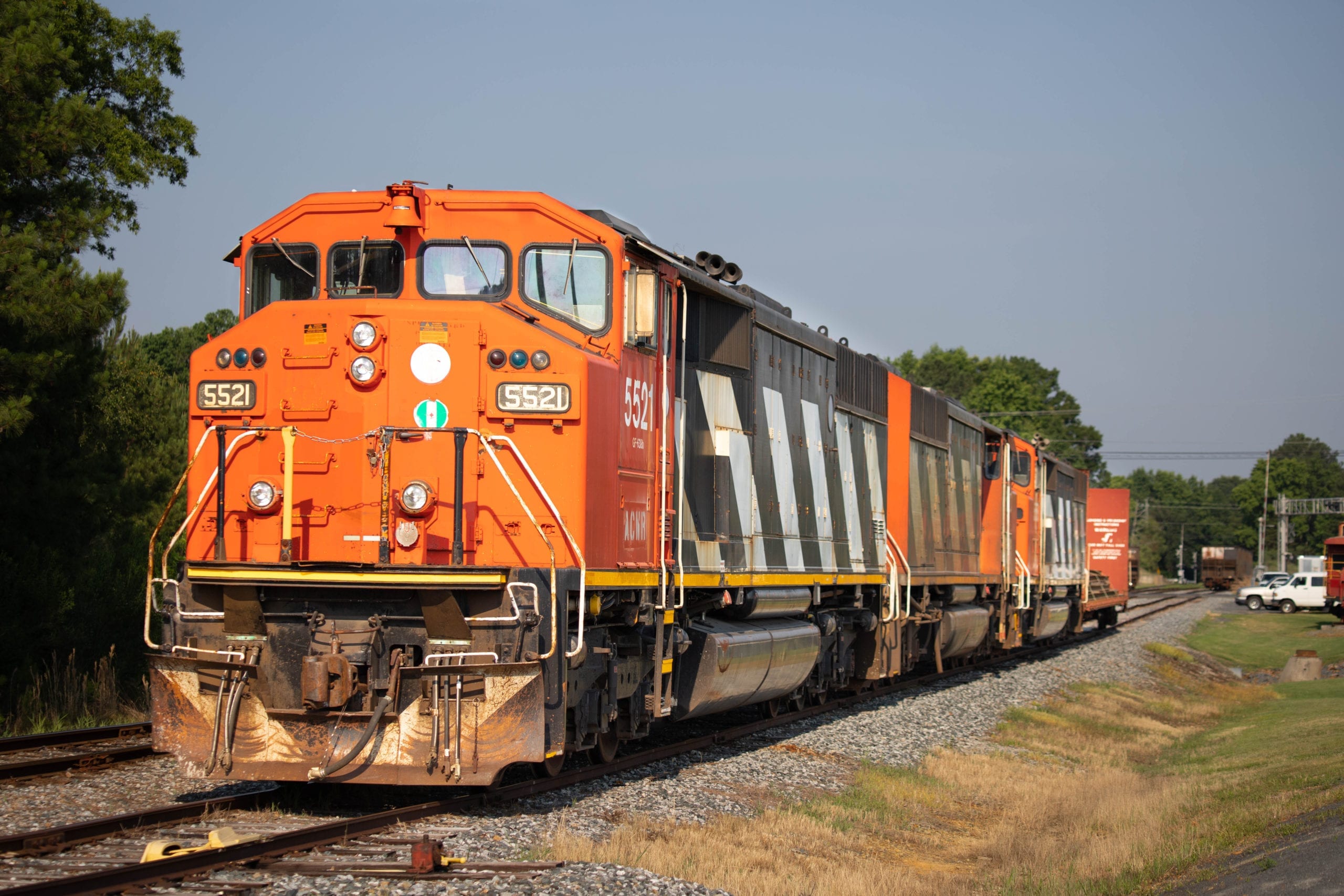Brian J Graber LLC is a railroad whistleblower lawyer representing Illinois, Indiana, and Michigan railroad employees who are retaliated against in violation of railroad whistleblower law. The Federal Railroad Safety Act, (FRSA), 49 U.S.C. §20109, protects railroad employees from retaliation for engaging in certain protected activities involving violations of federal laws relating to safety or security, reporting work-related injuries, and hazardous safety or security conditions. In certain circumstances, the FRSA’s Whistleblower Protections, 49 U.S.C. §20109(a) prohibits retaliation by railroad contractors and subcontractors against their employees for engaging in certain protected activities if certain requirements are met. Officers and employees of railroad carriers can be individually liable for violations of the FRSA’s Whistleblower Protection provisions.
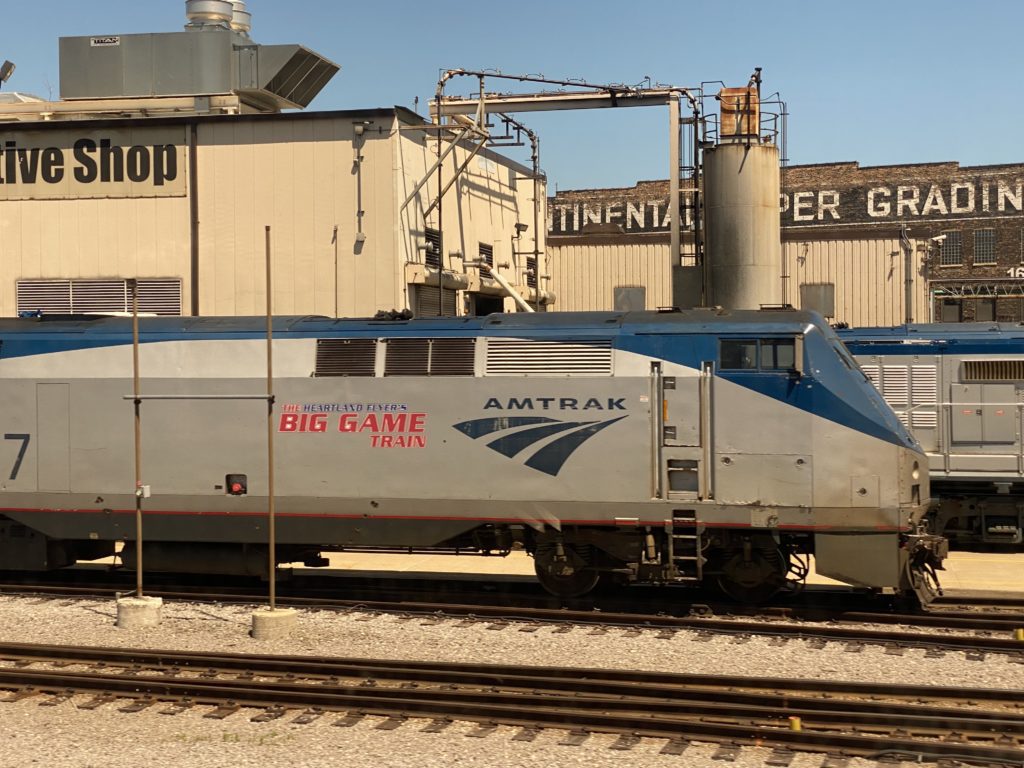
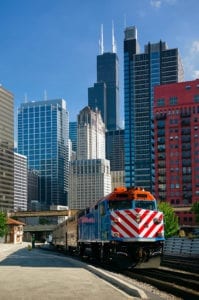
The FRSA’s Whistleblower Protection provisions apply to commuter railroads. Metra and Northern Indiana Commuter Transportation District (NICTD). Generally, a commuter railroad is covered by the FRSA Whistleblower Protection provisions if: (1) it serves an urban area, its suburbs, and more distant outlying communities in the greater metropolitan area; (2) its primary function is moving passengers between jobs in the city and homes within the greater metropolitan area, and moving passengers from station to station within the immediate urban area is, at most, and incidental function; and (3) the vast bulk of the system’s trains operate in morning and evening peak periods, with few trains at other hours. The Chicago Transit Authority’s rail that is known as the “L” is an example of an “urban rapid transit” system that is not covered by the FRSA’s Whistleblower Protections provisions. However, the Chicago Transit Authority’s “L” is covered by the National Transit Systems Security Act, (NTSSA), 6 U.S.C. §1142.
The FRSA’s Whistleblower Protection provisions apply to all intercity passenger railroad operations. An example of an intercity passenger railroad operation covered by the FRSA’s Whistleblower Protection provisions is the National Railroad Passenger Corporation d/b/a Amtrak.
If you believe that you were retaliated against in violation of your rights under the Federal Railroad Safety Act in Illinois, Indiana, or Michigan, contact BRIAN J GRABER LLC, a railroad whistleblower lawyer, at the Illinois office: (312) 291-4648 or Indiana office: (574) 395-5189 or in Michigan at (269) 230-6054 or by email to schedule a free confidential consultation.
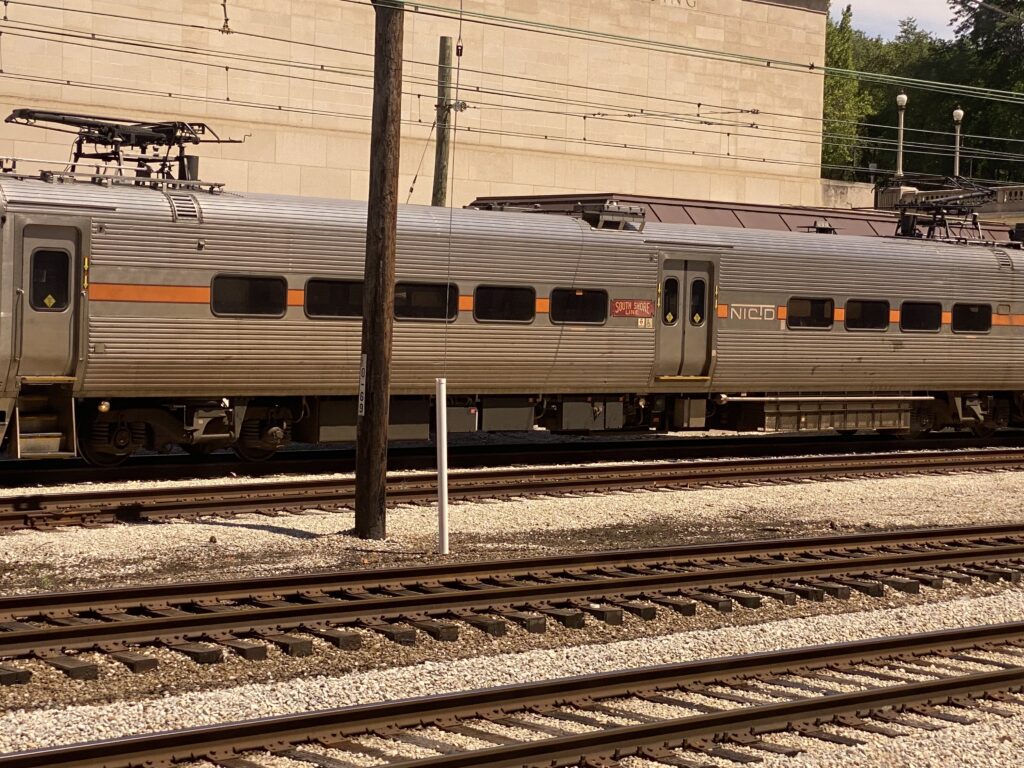
FRSA PROTECTED ACTIVITY
There are 12 different types of protected activities under the FRSA. OSHA divides these 12 different protected activities into separate sections: (1) general protected activity; (2) hazardous safety or security; and (3) prompt medical attention. Brian J Graber LLC is a railroad whistleblower lawyer representing railroad employees who are retaliated against in violation of the FRSA in Illinois, Indiana, and Michigan.
I. General Protected Activities
The FRSA, 49 U.S.C. §20109(a), makes it unlawful for a railroad carrier, a contractor or a subcontractor of a railroad carrier, or an officer or employee of a railroad carrier to discharge, demote, suspend, reprimand, or in any other way discriminate against an employee if such discrimination is due, in whole or in part, to the employee’s lawful, good faith act done, or perceived by the employer to have been done or about to be done:
- To provide information, directly cause information to be provided, or otherwise directly assist in any investigation regarding any conduct which the employee reasonably believes constitutes a violation of any Federal law, rule, or regulation relating to railroad safety or security, or gross fraud, waste, or abuse of Federal grants or other public funds intended to be used for railroad safety or security, if the information or assistance is provided to or an investigation stemming from the provided information is conducted by: (a) a Federal, State, or local regulatory or law enforcement agency, including an office of the Inspector General; (b) any member of Congress, any committee of Congress, or the Government Accountability Office; or (c) a person with supervisory authority over the employee or such other person who has the authority to investigate, discover, or terminate the misconduct. (This Section, FRSA, 49 U.S.C. §20109(a)(1) is the only protected activity that applies to security personnel employed by the railroad to protect individuals and property transported by the railroad).
- To refuse to violate or assist in the violation of any Federal law, rule, or regulation relating to railroad safety or security.
- To file a complaint, or directly cause to be brought a proceeding related to the enforcement of this part or, as applicable to railroad safety or security, 49 U.S.C. §5101, et seq., or 49 U.S.C. §5701, et seq., or to testify in that proceeding.
- To notify, or attempt to notify, the railroad carrier or Secretary of Transportation of a work-related personal injury or work-related illness of an employee.
- To cooperate with a safety or security investigation by the Secretary of Transportation, the Secretary of Homeland Security, and the National Transportation Safety Board.
- To furnish information to the Secretary of Transportation, the Secretary of Homeland Security, the National Transportation Safety Board, or any Federal, State, or local regulatory or law enforcement agency as to the facts relating to any accident or incident resulting in injury or death to an individual or damage to property occurring in connection with railroad transportation.
- To accurately report hours on duty pursuant to 49 U.S.C. §21101, et seq.
The protected activity described in 49 U.S.C. §20109(a) applies to contractors and subcontracts of railroad carriers to protect those employees from retaliation.
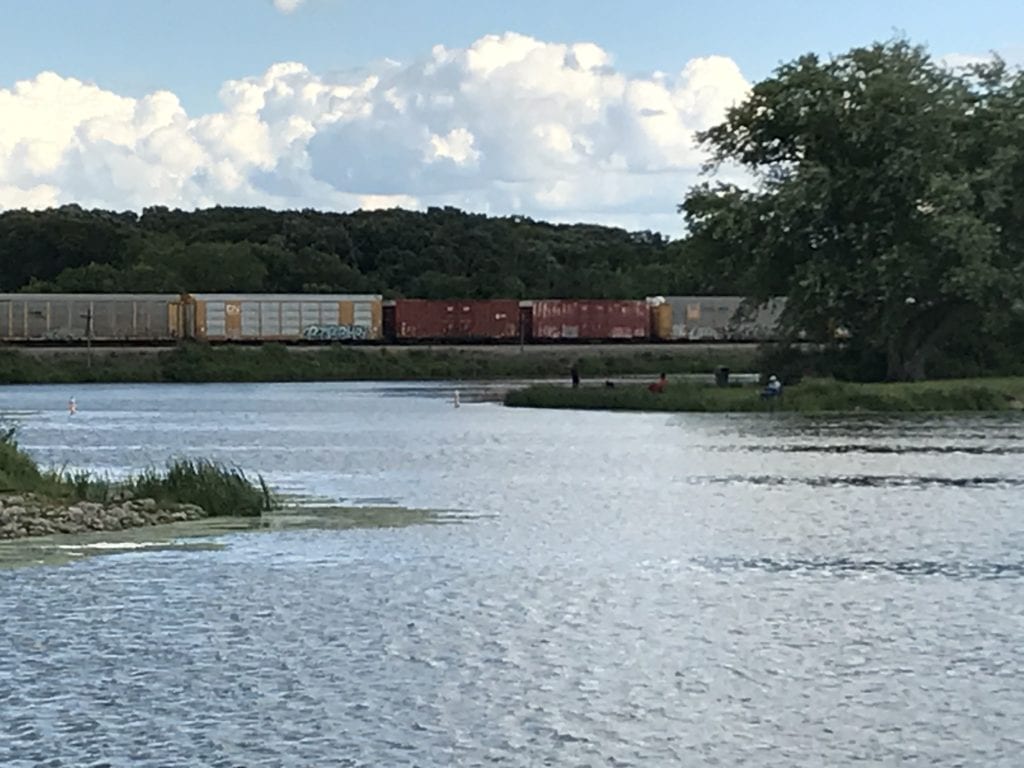
II. Protected Activities – Hazardous Safety or Security Conditions
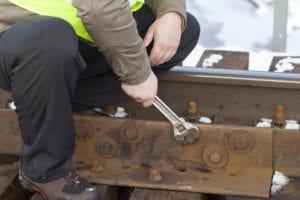
FRSA, 49 U.S.C. §20109(b)(1), makes it unlawful for a railroad carrier or an officer or employee of such a railroad carrier, to discharge, demote, suspend, reprimand, or in any other way discriminate against an employee for:
- Reporting, in good faith, a hazardous safety or security condition.
- Refusing to work when confronted by a hazardous safety or security condition related to the performance of the employee’s duties, if the refusal is made in good faith and no reasonable alternative to the refusal is available to the employee and a reasonable individual in the circumstances then confronting the employee would conclude: (a) the hazardous condition presents an imminent danger of death or serious injury; (b) the urgency of the situation does not allow sufficient time to eliminate the danger without such a refusal; and (c) the employee, where possible has notified the railroad carrier of the existence of the hazardous condition and the intention not to perform further work, or not to authorize the use of the hazardous equipment, track, or structures, unless the condition is corrected immediately or the equipment, track, or structures are repaired properly or replaced.
- Refusing to authorize the use of any safety-related equipment, track, or structures, if the employee is responsible for the inspection or repair of the equipment, track, or structures, when the employee believes that the equipment, track, or structures are in a hazardous safety or security condition, if the refusal is made in good faith and no reasonable alternative to the refusal is available to the employee and a reasonable individual in the circumstances then confronting the employee would conclude: (a) the hazardous condition presents an imminent danger of death or serious injury; (b) the urgency of the situation does not allow sufficient time to eliminate the danger without such a refusal; and (c) the employee, where possible has notified the railroad carrier of the existence of the hazardous condition and the intention not to perform further work, or not to authorize the use of the hazardous equipment, track, or structures, unless the condition is corrected immediately or the equipment, track, or structures are repaired properly or replaced.
III. Protected Activities – Prompt Medical Attention

The FRSA, 49 U.S.C. §20109(c), prohibits a railroad carrier, or an officer or employee of a railroad carrier from:
- Deny, delay, or interfere with the medical or first aid treatment of an employee who is injured during the course of employment. If transportation to a hospital is requested by an employee who is injured during the course of employment, the railroad shall promptly arrange to have the injured employee transported to the nearest hospital where the employee can receive safe appropriate medical care.
- Discipline or threaten discipline to an employee for requesting medical or first aid treatment, or for following orders of a treatment plan of a treating physician, except that a railroad carrier’s refusal to permit an employee to return to work following medical treatment shall not be considered a violation of this section if the refusal is pursuant to Federal Railroad Administration medical standards for fitness for duty or if there are no pertinent Federal Railroad Administration standards, a carrier’s medical standards for fitness for duty. For purposes of this paragraph, the term “discipline” means to bring charges against a person in a disciplinary proceeding, suspend, terminate, place on probation, or make note of reprimand on an employee’s record.
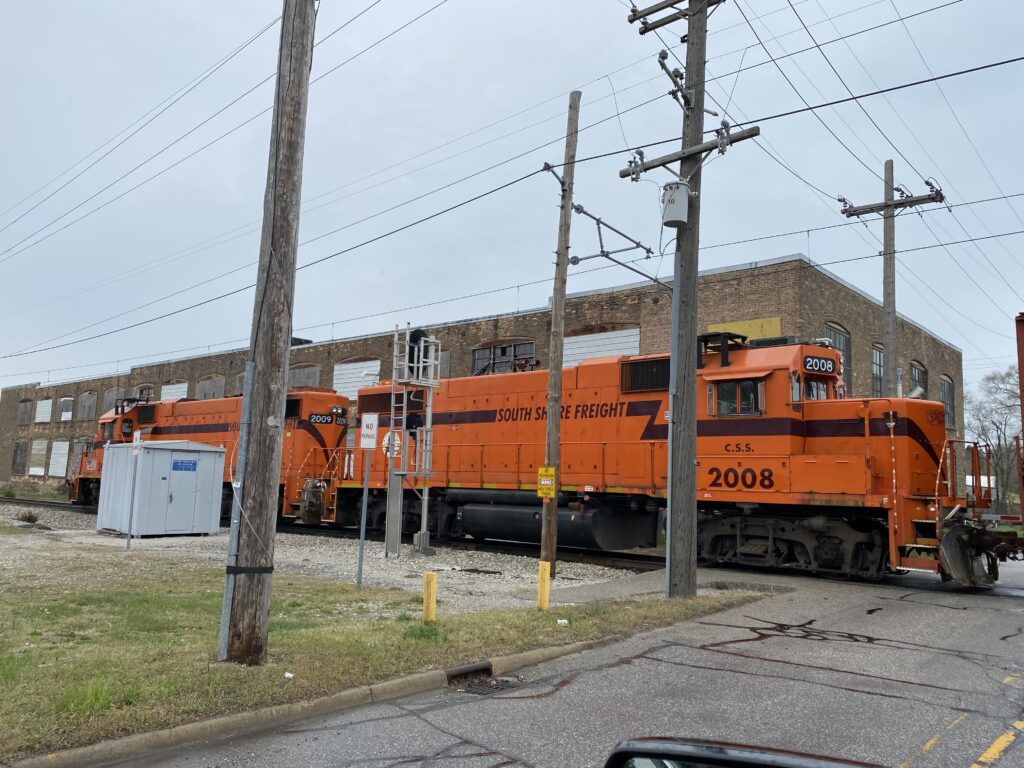
EMPLOYEE’S BURDEN OF PROOF
An employee claiming he or she suffered retaliation in violation of the FRSA’s Whistleblower Protection provisions must generally prove the following:
- The employee engaged in one or more of the above-described 12 FRSA protected activities;
- The employer/manager knew of or suspected that the employee engaged in FRSA protected activity;
- The employee suffered retaliatory action; and
- The FRSA protected activity was a “contributing factor” in the retaliatory action.
A “contributing factor” is a factor which, alone or with other factors, in any way affects the outcome of the decision. Each and every case is different and each case requires a detailed legal analysis by an experienced employment attorney. Several other factors alleged by the employer may require further legal analysis and could have an effect on the ultimate outcome of the potential litigation.
BRIAN J GRABER LLC is a railroad whistleblower lawyer representing employees in Illinois, Indiana, and Michigan who have been retaliated against in violation of their rights under the Federal Railroad Safety Act. If you believe that your employer retaliated against you in violation of the Federal Railroad Safety Act, contact BRIAN J GRABER LLC, a railroad whistleblower lawyer at the Illinois office: (312) 291-4648 or the Indiana office: (574) 395-5189 or in Michigan at (269) 230-6054 or by email to schedule a free confidential consultation.
STATUTE OF LIMITATIONS AND 210-DAY “KICK-OUT” PROVISIONS
The FRSA, 49 U.S.C. §20109(d)(2)(A)(ii), requires an aggrieved employee to file a Whistleblower Complaint with the U.S. Department of Labor/OSHA not later than 180 days after the date of the alleged violation of the FRSA’s Whistleblower Protection provisions. Failure to timely file a Whistleblower Complaint with the U.S. Department of Labor/OSHA forever bars any recovery under the FRSA for violations of the Whistleblower Protection provisions. Brian J Graber LLC, a railroad whistleblower lawyer prepares and files Whistleblower Complaints with OSHA for our clients who have retained our legal services. You should timely consult an experienced attorney because there are many considerations that go into properly preparing and timely filing a Whistleblower Complaint with OSHA. Contact Brian J Graber LLC, a railroad whistleblower lawyer in Illinois at (312) 291-4648, or in Indiana at (574) 395-5189, or in Michigan at (269) 230-6054 for a free consultation.
FRSA, 49 U.S.C. 20109(d)(3), allows an employee to file a lawsuit against all defendants in the federal district court if OSHA has not reached a final decision on the employee’s Whistleblower Complaint within 210 days after the Whistleblower Complaint was filed with OSHA and the delay is not due to any bad faith on the part of the employee. This option is known as the “kick-out” provision. An employee deciding to exercise his or her rights under the “kick-out” provision and file suit in federal court can request a jury trial on all issues. An employee who decides to proceed administratively will have an Administrative Law Judge decide all issues without the right to a jury trial.
Brian J Graber LLC is a railroad whistleblower lawyer practicing railroad whistleblower law in Illinois, Indiana, and Michigan. Contact Brian J Graber LLC, a railroad whistleblower lawyer in Illinois at (312) 291-4648, or in Indiana at (574) 395-5189, or in Michigan at (269) 230-6054 or email if you would like a free consultation on your rights under the FRSA Whistleblower Protection provisions.
